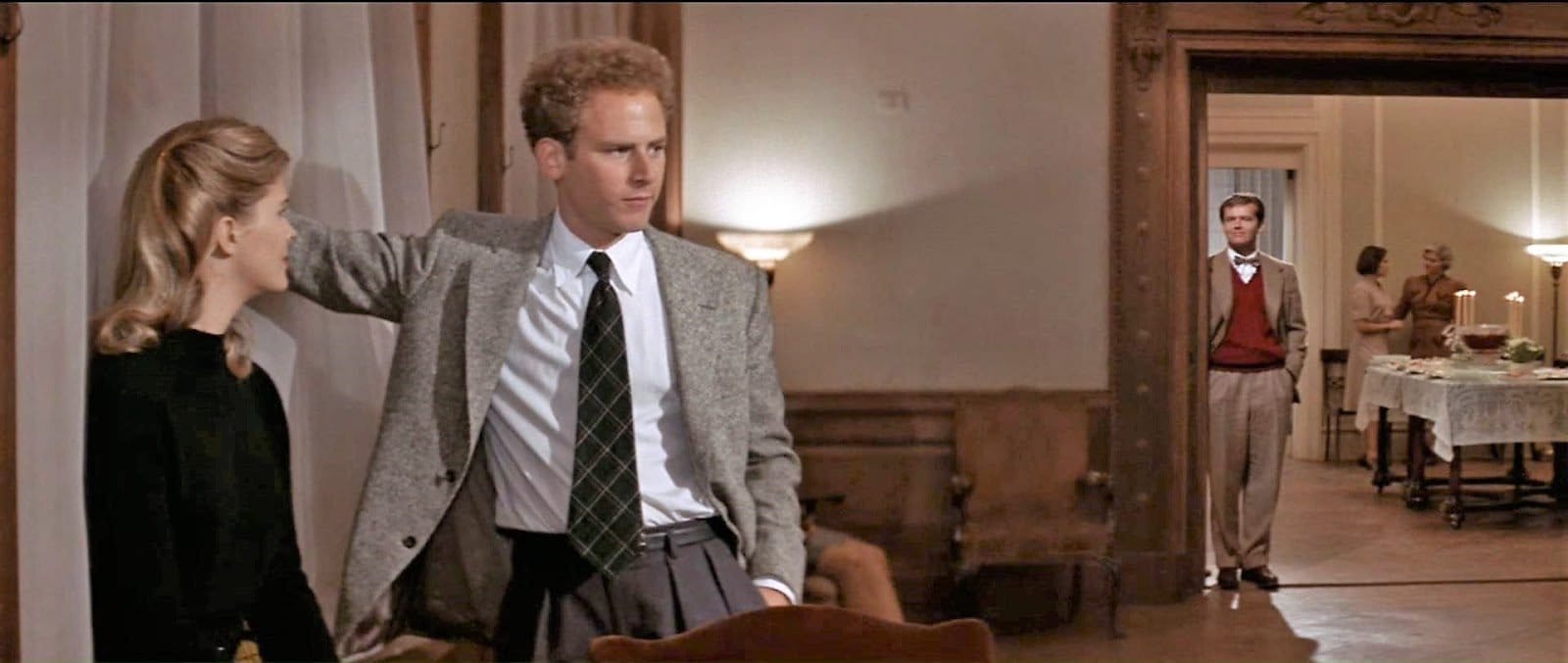The Scandal of ‘Carnal Knowledge’
Mike Nichols’ 1971 film inspired an obscenity case that went all the way to the Supreme Court. Its ability to shock has not faded.

“It’s pornography,” Katharine Hepburn said of two then-recent films in a 1971 interview with AP columnist Bob Thomas. “Nothing more or less than pornography. It appeals to the lowest possible level of human experience. I think it’s atrocious.” The two films that drew Hepburn’s ire: John Schlesinger’s Sunday Bloody Sunday, notable for its groundbreaking depiction of a same-sex relationship (“[T]wo hairy bodies embracing. Pornography!”) and Carnal Knowledge. Hepburn’s objections to the former are sadly obvious. The latter seems to have offended her on a philosophical level. “Carnal Knowledge is a boring picture about lust,” she continued. “It’s supposed to be a depiction of the state of the American male today. I don’t believe that. I can’t believe that American men are as bad off as Carnal Knowledge makes it appear.”
In her blustering, Hepburn neatly summed up the conversation surrounding Carnal Knowledge, however accidentally. Were men really this bad? Were they really so awful in the way they talked about women behind their backs? Had, at the other end of an era of great social tumult, relations between men and women gone backwards rather than forward? Directed by Mike Nichols, working from a script by Jules Feiffer that began as a stage play (and later became one), Carnal Knowledge prompted heated conversation even before it became the subject of an obscenity law court case that went all the way to the U.S. Supreme Court. By July 1971, the film had become such a hot topic that Macon, Georgia’s Telegraph ran an article presenting five different viewpoints ranging from the paper’s critic (“a penetrating study”) to a Baptist minister (“funny, but not hilariously so”); in December, the paper began covering the story of the film’s seizure in Albany, a small city less than two hours to the south. Every once in a while, a film touches a cultural live wire. Carnal Knowledge tapped directly into the cultural power grid.
It’s not hard to see why. They’re the same reasons that make Carnal Knowledge as uncomfortable and fascinating today. Depicting two-plus decades in the sex lives of two unextraordinary men—who begin the film as a pair of privileged Amherst College students and end it as successful New York professionals—the film charts their journey from something like innocence (or at least ignorance) to delusion, hatefulness, and isolation. They don’t get wiser with time, they get worse, each in their own way. The question that opens the film became the film’s most famous line: “If you had a choice, would you rather love a girl or have her love you?” It’s also a bit deceptive. These are men who’ll find they’re incapable of either loving or being loved.
Jonathan (Jack Nicholson) asks the question of his roommate Sandy (Arthur Garfunkel). Two freshman virgins entering college in the second half of the 1940s, they’ve already formed different notions about love. Sandy remains starry-eyed. “She just has to be nice, that’s all,” he tells Jonathan, though he adds he’d prefer her to be “built.” Jonathan has more specific notions about his preferred anatomy, requiring of his dream girl “big tits,” the first example of the character’s almost poetic gift for blunt language that will steadily incorporate increasingly ugly terms like “slut,” “tramp,” and “ballbuster” as the film goes along. Neither approach will put these men on the path to happiness.
Both quickly fall for Susan (Candice Bergen), a student at nearby Smith College whom Sandy, with much trepidation, approaches at a mixer. Sandy’s accounts of his courtship of Susan prompt Jonathan to seek her out. After Susan and Jonathan begin dating behind Sandy’s back, it becomes obvious that Susan has a different sort of chemistry with both men (if “men” is the right word), as if each served a different need. Jonathan’s bold and physical. With Sandy, she finds a deeper emotional connection. It’s as if both were half-right for her, which effectively amounts to both being entirely wrong.

This post is for paying members only
Sign up now to read the post and get access to the full library of posts for subscribers only.
✦ Sign up